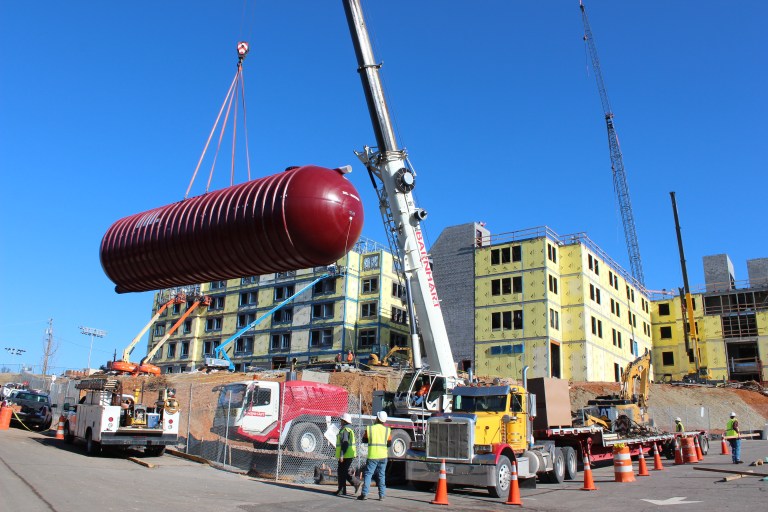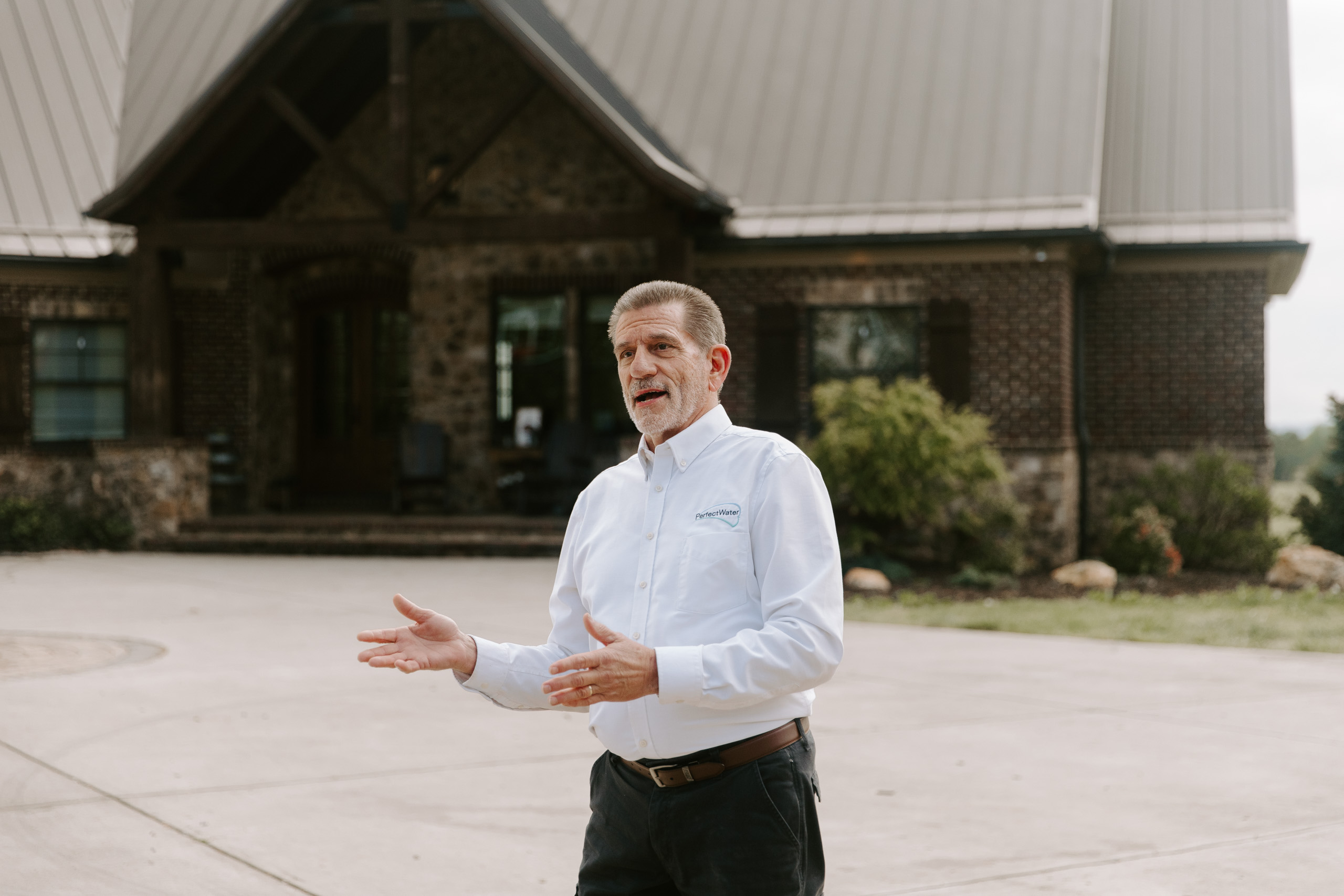Commercial Applications for Rainwater Harvesting

Rainwater harvesting is not only for residential applications, water needs in commercial and industrial processes can cost thousands of dollars a year, not only that, but rainwater harvesting helps new construction comply with stormwater regulations in retaining stormwater.
What is Rainwater Harvesting?
Rainwater harvesting is the capture and storage of rooftop rainwater for retention for future use and/or detention for stormwater runoff compliance.
It is NOT REclaimed water, REuse water, REcycled water, or GRAY water.
While this article focuses on commercial applications, rainwater harvesting can be used in conjunction with industrial processes, institutional and government buildings, military installations, agricultural watering for plants and animals, and local, state, and federal parks.
Primary Applications for Large-Scale Rainwater Harvesting
Rainwater harvesting provides a solution for two problems that are common today.
Stormwater Compliance – It helps new construction projects meet and maintain stormwater compliance.
Water Savings – It can help mitigate the amount of water being used in commercial and industrial processes. Which in these applications, can often amount to millions of gallons of water per year.
Common Commercial Uses
Rainwater harvesting in a public setting can be used for any non-potable water function. This includes:
- Cooling tower make-up water
- Toilet flushes
- Irrigation
- Fire suppression
- Manufacturing processes
- Vehicle/Fleet washes
- Laundries
- Pool fills
Benefits of Commercial Rainwater Harvesting
Stormwater management – Due to stormwater regulations, rainwater harvesting can help achieve proper stormwater compliance.
Reduced cost of site plan – Because of stormwater regulations. Methods such as retention ponds are often used to meet the standards, these can be unsightly and use large spaces. With rainwater harvesting, these spaces can be repurposed or sold.
Reduced cost of water and/or irrigation – In large-scale commercial applications, millions of gallons of water can be used every year. Depending on water usage and water rates, rainwater harvesting may be very financially beneficial.
LEED points and Mitigation credits – Rainwater harvesting is eligible for LEED points and may be eligible for other credits as well.
Availability of water – Whether for fire protection or due to an undependable water source, rainwater harvesting can allow for hundreds of thousands of gallons for on-site water storage.
Superior water quality – Harvested rainwater is high-quality water. It is naturally soft and has low total dissolved solids. Minimal filtration is required to make the water safe and usable. See this article about the quality of rainwater.
Stewardship – Rainwater harvesting helps to conserve this precious resource by not using up our limited groundwater supply, it also helps reduce the carbon footprint of centralized water.
Rainwater Harvesting Cost Recovery
As much as we wish it wasn’t always a determining factor, we know cost has a lot to do with new construction decision making. These following factors will help you determine bottom line returns (ROI):
- Substantial LEED Points
- Rainwater system capital cost can be depreciated to reduce taxes
- Project future water rate increases
- Factor in costs of stormwater detention/retention requirements
- Factor in costs of site plan development
- Include any applicable tax incentives
- Determine the value of your landscaping and include what it would cost to replace plants. (No Water Bans).
- Factor in the cost of softening systems when treated process water is required (Naturally Soft
- Reduced cost of stormwater mitigation fees
Other returns also include community environmental perceptions, helping the environment.
Next Step for Commercial Rainwater Harvesting
There is a company located in the southeast that is a leading force in commercial rainwater harvesting, Rainwater Resources, PerfectWater’s sister company. They have a team of in-house engineers and are capable of handling large-scale rainwater harvesting projects from design through installation.
Want to learn even more about rainwater harvesting in Knoxville and Nashville? Check out our Ultimate Guide to Rainwater Harvesting
You can also contact our team.
Ready to Take Control of Your Water Supply?
Don’t wait for water shortages or unreliable sources to disrupt your life. With our Rainwater Harvesting systems, you can enjoy a sustainable, reliable, and completely self-sufficient water solution tailored to your home’s needs.

